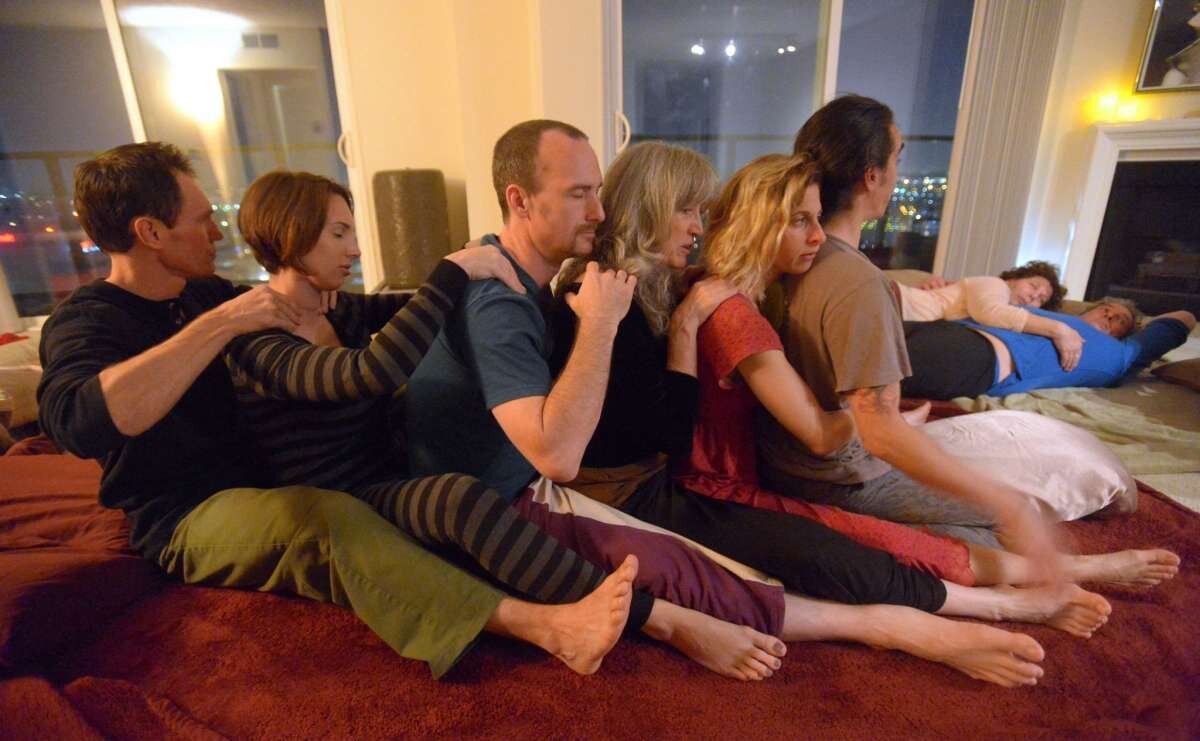Why Love Is Everything
Ask anybody one of those generic ‘life’ style questions: favourite holiday? biggest dream? happiest memory? craziest story? etc etc…
The answers, without exception, will contain certain details about loved ones, partners, friends, family, lovers etc. Try it with your buddies and you’ll understand.
So what does this actually mean? That people are always in our lives? That relationships are important? That life is only worth living through others?
My hypothesis is that, deep down, beneath all of our dreams and desires, as well as our toughest fears, is the simple need to be loved. To feel loved. To see and be seen, to hold and be held, by others.
A typical ‘cuddle party’ - something thousands of people worldwide are turning to for more love and support. What does this say about our families, relationships and communities however? A sign of trouble or a simple celebration of care and appreciation?
The 5 Why Strategy
There’s a simple exercise anyone can do to breakdown their motives and deeper, more basic wishes. Like I said, it’s simple:
Ask yourself, ‘what do I want to do today?’ or even ‘how do I want to live my life?’
Write the answer down, then proceed to ask WHY, and keep writing those consequential answers also.
After 5 whys you should get to the root desire / need beneath anything you thought you truly wanted…
And let me tell you: by the 3rd, 4th or 5th WHY, it very much becomes about ‘relationships’ or ‘love’ in at least some sense of the word.
Whether it’s about helping others, getting married, connecting deeper with friends and family, working alongside a special tribe of people etc, the relationship essence will be there, somewhere, without a doubt!
Journalling in various capacities is a powerful tool for better understanding oneself, as well as helping to organise, explore and approach one’s life. Personally, I like to make ‘what’s alive?’ lists and ‘to-do’ lists as well as simply venting thoughts and ideas down onto a page. I also have 3 different coloured books: 1 for Movement, 1 for daily life things and 1 for ‘Self-work’ / Therapy processes…
The ‘I Don’t Know’ philosophy
I believe that if something is somewhat of an inevitable truth - like our innate need/desire for love and connection - then the beginner’s mindset is always the best way to approach it.
This means to simply accept that we 'DON’T KNOW’ how to find it.
It’s not that we have no skills or capacity, but that to come from naivety/openness/curiosity will be more helpful long term, by far. Holding onto our current strategies and assumptions will generally only reveal what we already currently know…
So write down the words: I DON’T KNOW HOW TO LOVE or I DON’T KNOW HOW TO BE IN A RELATIONSHIP
Then starting from that place, you can begin listing potential actions or ideas for developing a more connected life:
> call my Mother every week
> download and try a dating app
> go to a group meditation session once a week
> ask ex-partners for feedback on my communication skills
> find common hobbies with friends and family to engage with every week or month etc etc
Don’t be afraid to keep it very rudimentary even! The simpler the better in fact, as the easiest things to do (like walking, sitting, standing etc) are often the things we neglect or do most ineffectively.
It’s the same with relationships - it’s shocking how difficult it is for many people (including myself) to simply say how we feel, what we want and what we’d like from the other person etc.
Complex therapy methods and strategies should bring us always back to simplicity… meaning, what do we want and need RIGHT NOW, from ourselves and from others.
A ‘dynamic walking’ class - one of many formal methods for the simple practice of walking / running. As Moshe Feldenkrais and others recognise, these simple movements (like relating) requires daily practice and consistent revisiting to remain an effectively ordinary human. Unfortunately, it’s easy to replace the basics with more sexy-looking movements or elaborate communication / relationship tools, without ever returning to our basic human condition…
Love is everything. But it takes a special human to be so ordinary (ironically enough).
So keep it simple. Use a notebook, check in with friends and family daily, practice doing the simple things well (outside of relationships) and, most of all, enjoy!
Relationships are our most valuable resources. The potential exchange of ideas, skills, cuddles and companionship is surely the most remarkable thing we have to live for.
So let’s embrace them and all they have to offer, dear readers…
Did you enjoy this blog? If so, click here to support EaglesWrites…


